#IWD2022: Creative Women - Catherine Mugonyi
07 March 2022 by Michelle
To celebrate International Women's Day on Tuesday 8th March 2022, we're hosting a series of feature interviews with dynamic, trailblazing and courageous women working in creative fields who have a connection to Lancashire. Catherine Mugonyi is a Blackpool-based Creative Freelancer and the Director of a Community Arts Organisation.
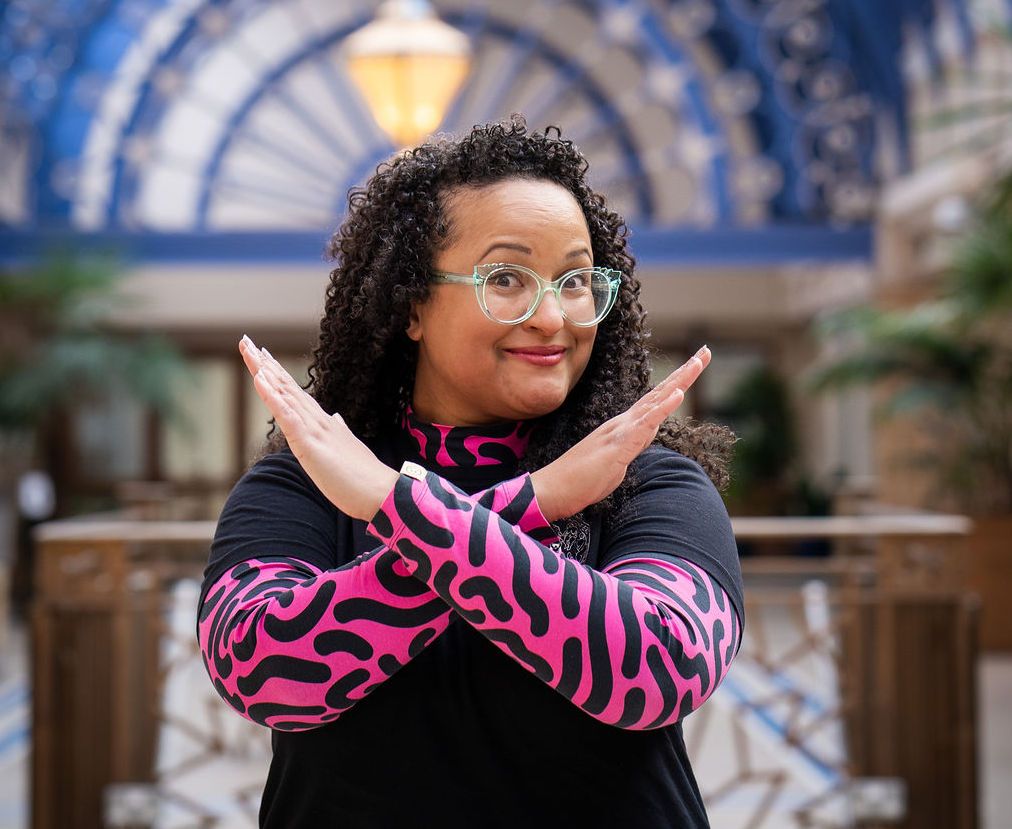
International Women's Day is an annual event that has been celebrating women since 1911.
This year's theme of #BreakTheBias continues the global call to stand up for a more equitable and inclusive world free of discrimination and stereotypes. This initiative is an opportunity to honour the women in your life and encourages us all to take action for equality, so that we can forge a gender-equal world.
Meet the next of our featured women for this year's Creative Lancashire International Women's Day campaign.
Catherine Mugonyi is a director of Aunty Social CIC (a community arts organisation) and a creative freelancer who works on arts and heritage projects and events.
She's also a trustee of Creative Lives, the UK charity that champions the amateur arts and a member of the National Lottery Heritage Fund North Committee.
Tell us a bit about you and your work?
I live and work in Blackpool and went to school here.
I’ve always enjoyed being creative. Growing up I was constantly reading or drawing and I loved visiting museums and galleries with my parents in the summer holidays.
Aunty Social CIC has been running for 10 years, and I have been doing part-time freelance work for 4 years and full-time for just under 1 year.
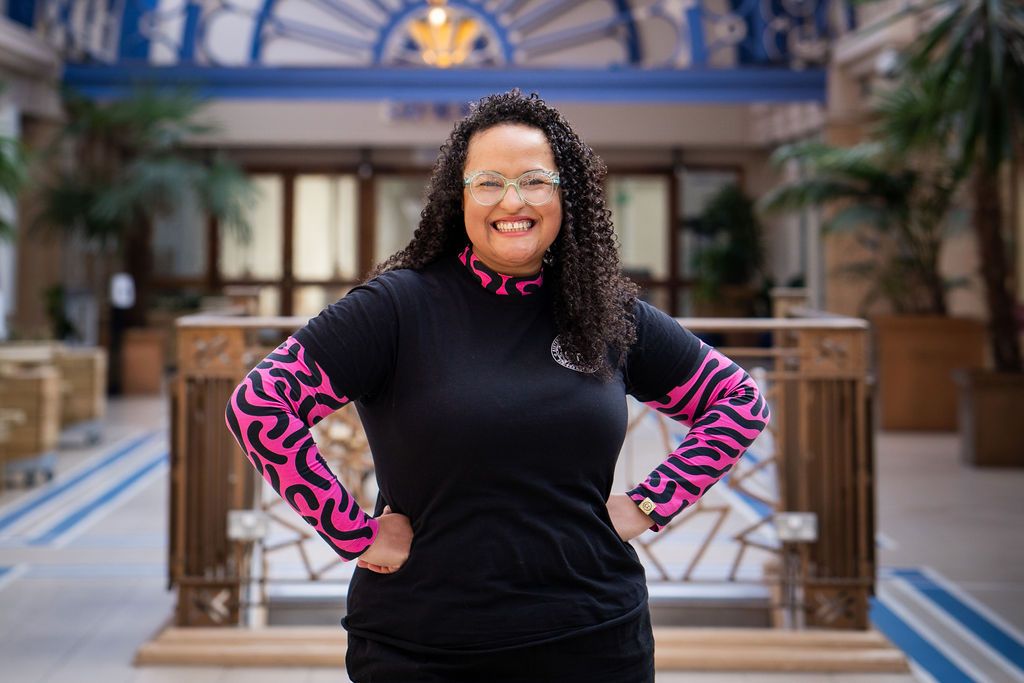
Have you always done what you currently do?
I wasn't especially encouraged to follow a creative path at school because arts subjects weren't necessarily seen as a means to a stable career. I ended up studying law at university, going on to get an MA and a legal practice certificate. It was only afterwards that I realised I did not want to do this as a job.
I ended up working at Blackpool Council for ten years in a variety of roles including Partnership Delivery and Community Engagement. I spent most of that time as Equality Officer, working with marginalised communities to improve policy, and open up access to services and employment opportunities.
During this time I realised how much I enjoyed meeting residents and working together to create and plan community projects.
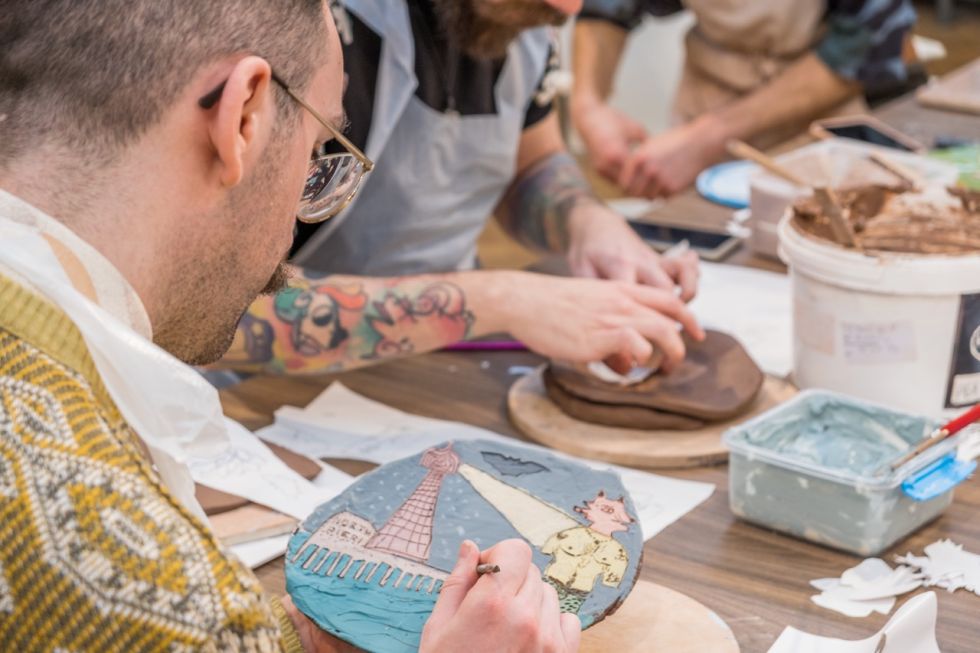
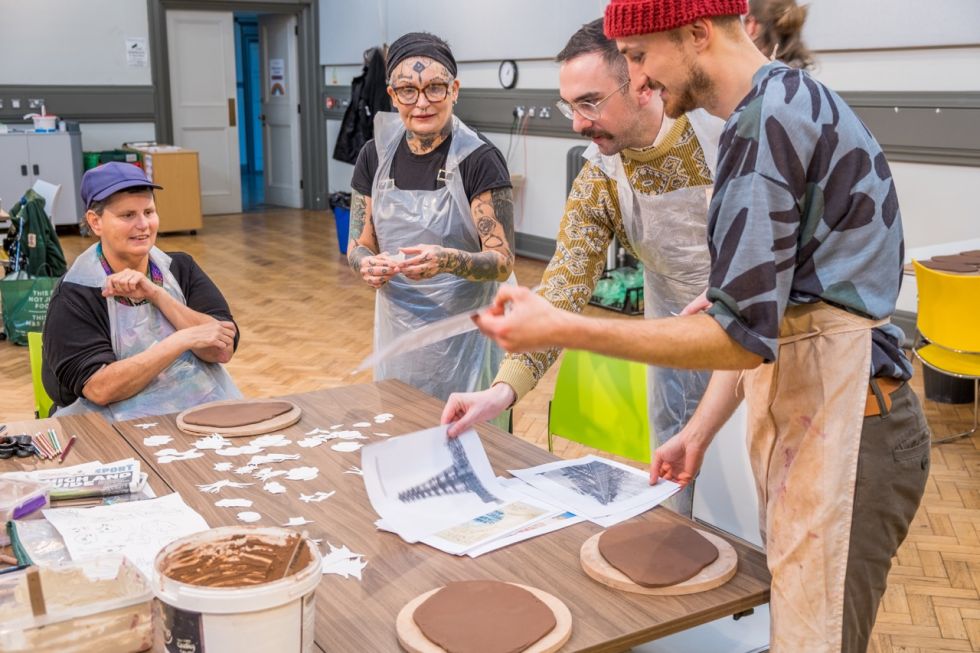
What inspired or motivated you to do the work you currently do?
In 2011, I founded Aunty Social with some friends. Prompted by a lack of social activities outside of bars and clubs, we started organising events in cafés and libraries in order to connect with others through a shared love of crafts and film. It was also a great way to reconnect with the creative activities that I’d loved whilst growing up.
As I learned about arts events and projects, I began to take on freelance work in the sector, eventually leaving Blackpool Council and starting working as Creative Programmer at the The Harris Museum, Library and Art Gallery in Preston.
Here I planned activities that encouraged people to experience a variety of artworks/forms and explore their own creativity as well as the Harris’ extensive collections.
Coming full circle, I left the Harris in 2021 to focus on Aunty Social, supporting amateur and professional artists and organising and co-producing events and projects that strengthen engagement between marginalised communities, local history and the arts.
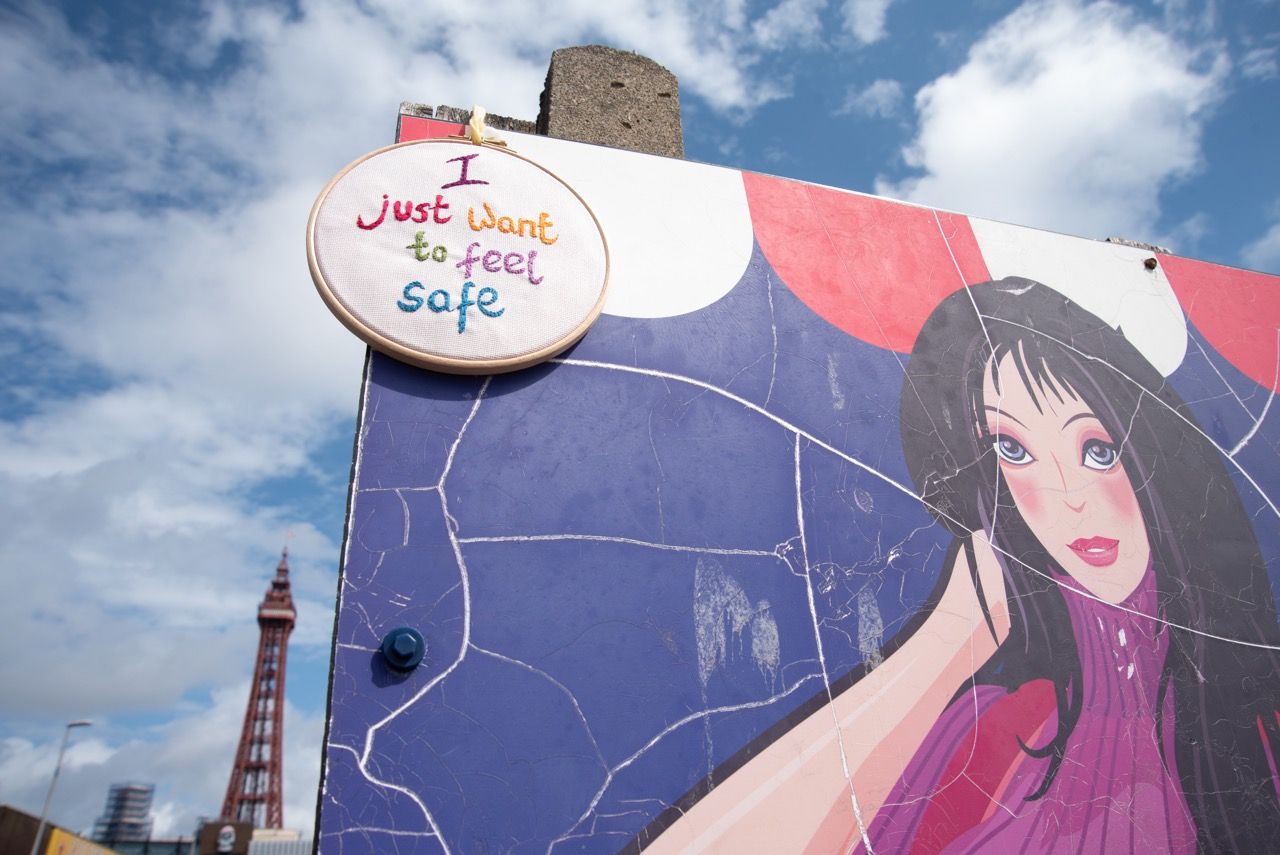
What do you love about being a creative and working in creative industries in the North West?
I think that there are a tremendous amount of opportunities in the North West.
I mainly work in Blackpool where the independent scene is really blossoming. At the moment there's a real buzz around the town centre with lots of new businesses and groups starting up and new venues opening.
I’m particularly excited about this DIY ethos of identifying a need or a gap in provision, then pitching in to build something from the ground up. It’s great to be part of that emerging scene.
It also really helps that access to space is much more affordable here. Room hire, rent, building costs are all significantly less than in regional cities and anywhere in the south.
It's much easier to take risks and test new ideas out here.

Any advice for women starting out or making their mark in creative industries?
Focus on what you want to achieve, it’s very easy to get stuck into a routine that doesn’t really progress your career. Try and set a 1, 5 and 10 year plan. This will help you break things down into much more manageable steps.
Keep a record of the work that you're particularly proud of: achievements both personal and professional. These are great ways of keeping you really motivated and can help you speak comfortably about your accomplishments to prospective partners, employers and clients.
Set aside time for personal and professional development. Being really confident in the quality of your practice is invaluable and motivates you to grasp more opportunities.
Take time to rest, slow down, daydream and reflect. This could mean turning off devices, taking more naps, being outside in green space, talking to a friend, reading books. You’re not always on call, you are not a machine - do you really want to work with people who treat you like one? If you have to, are there ways to change that?
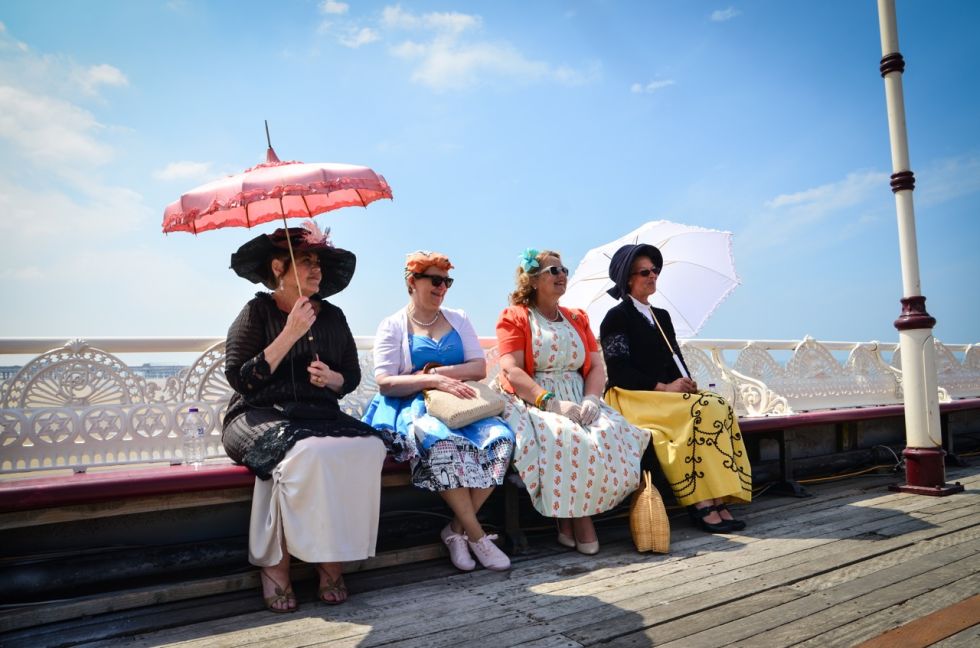
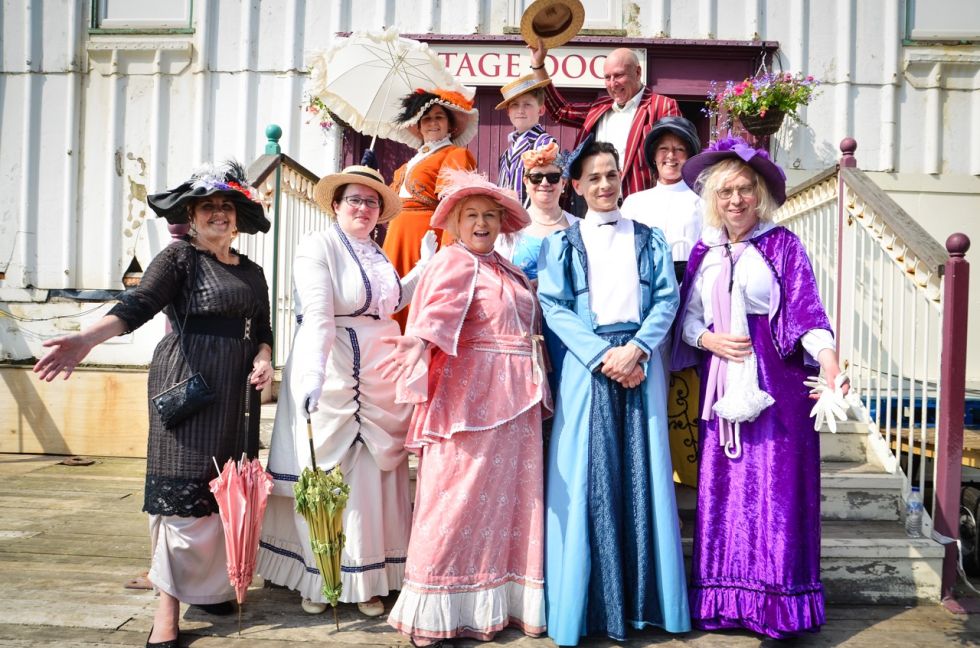
From a creative perspective, what do you think Lancashire has to offer female creatives, that other regions might not?
I can't really comment on other regions because the majority of my work is in this area. However, I think that there are lots of female creatives actively and visibly working in a variety of different art forms and disciplines in and around Lancashire. It's great to see women making arts and culture work as a career.
Through running Charabanc (artist and makers’ shop) and Blackpool Social Club (online arts and culture magazine), I’ve come into contact with many women who have started out in an amateur capacity, then transformed that hobby it into a successful creative business.
It’s always heartening to hear about people making that final jump from ‘side-hustle’ to working full time on their project; taking the reins and making work a better fit for their life.
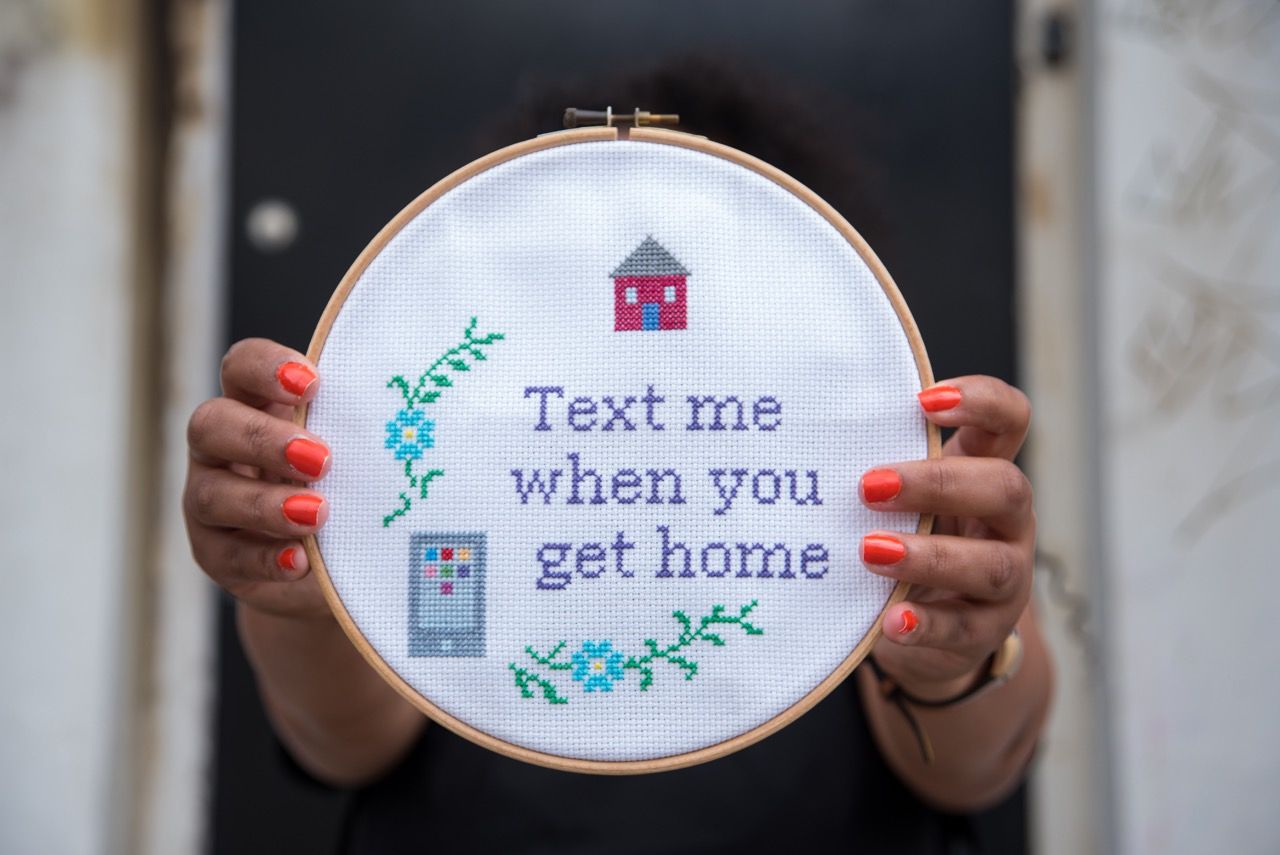
As an artist, creative practitioner and grass-roots community educator how do you think we can create a more diverse, equitable and inclusive world in our creative industries and communities?
I really believe that we need to do more to interrogate our existing systems and norms. We’ve been working to improve equality and diversity for years now, we’ve seen progress in the area of acceptance, awareness and ‘changing hearts and minds'.
It’s not perfect, but there’s progress. However in terms of systems within the sector, we still have plenty to do. We need to think about when these systems were created and who they were designed to benefit - is that appropriate for 2022? Following on from our pandemic learning, do they pay due regard to rest, wellbeing and care?
We must scrutinise the way that power is held and look at ways to rebalance it in order to create a more culturally democratic environment. This could even mean realising that we are not always best placed to do a certain job and that we need to give up (or hand over) power and resource to lift up those who are marginalised but more capable of doing the work.
We need to be more comfortable with talking about money. Transparency in funding, pay and admin practices fosters trust, it shows the sector what is possible and helps artists advocate for better pay elsewhere. It’s so important to be upfront about pay and working practices in the cultural sector as so few people speak frankly about it.
Setting goals such as being a Living Wage employer or paying Artist Union rates can only help close pay gaps and help freelancers in the creative industries set realistic and fair fees. In-work poverty is very real and we can only tackle this by paying a wage that accurately reflects the cost of living.
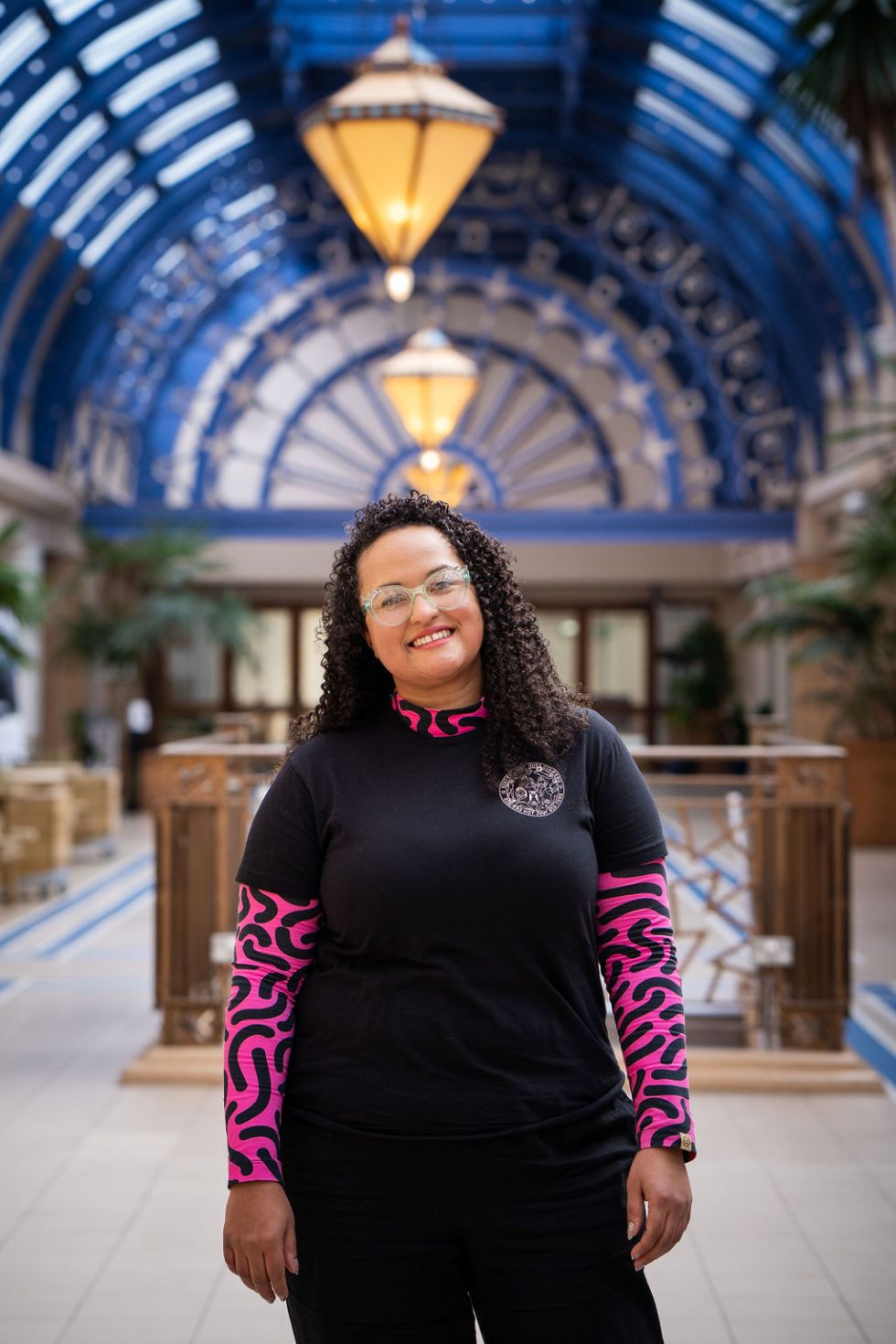
I’d like to see less credentialism, there are plenty of people with decent transferable skills and experiences, they don’t necessarily need a specific arts degree to do a creative job.
In January, the Fawcett Society published its 2022 Sex and Power Index (a report which charts the progress towards equal representation for women in top jobs across the UK) showed that women make up just 22% of UK museum and gallery chairs and 37% of directors. We have so far to go in recruiting to strategic leadership and management roles that essentially shape our sector.
Looking at the Arts Council England’s Equality, Diversity and the Creative Case: Data Report 2019-20, women make up 66% of Chief Executives, 49% of boards and 50% of the workforce of National Portfolio Organisations. While these figures are really positive, the figures for people of colour, disabled people and LGBTQIA+ people in these positions are nowhere near as representative. This picture is similar in relation to audiences.
It makes we wonder what’s being done to recognise intersectionality and the additional barriers that face people who belong to more than one group? Is it even being talked about widely?
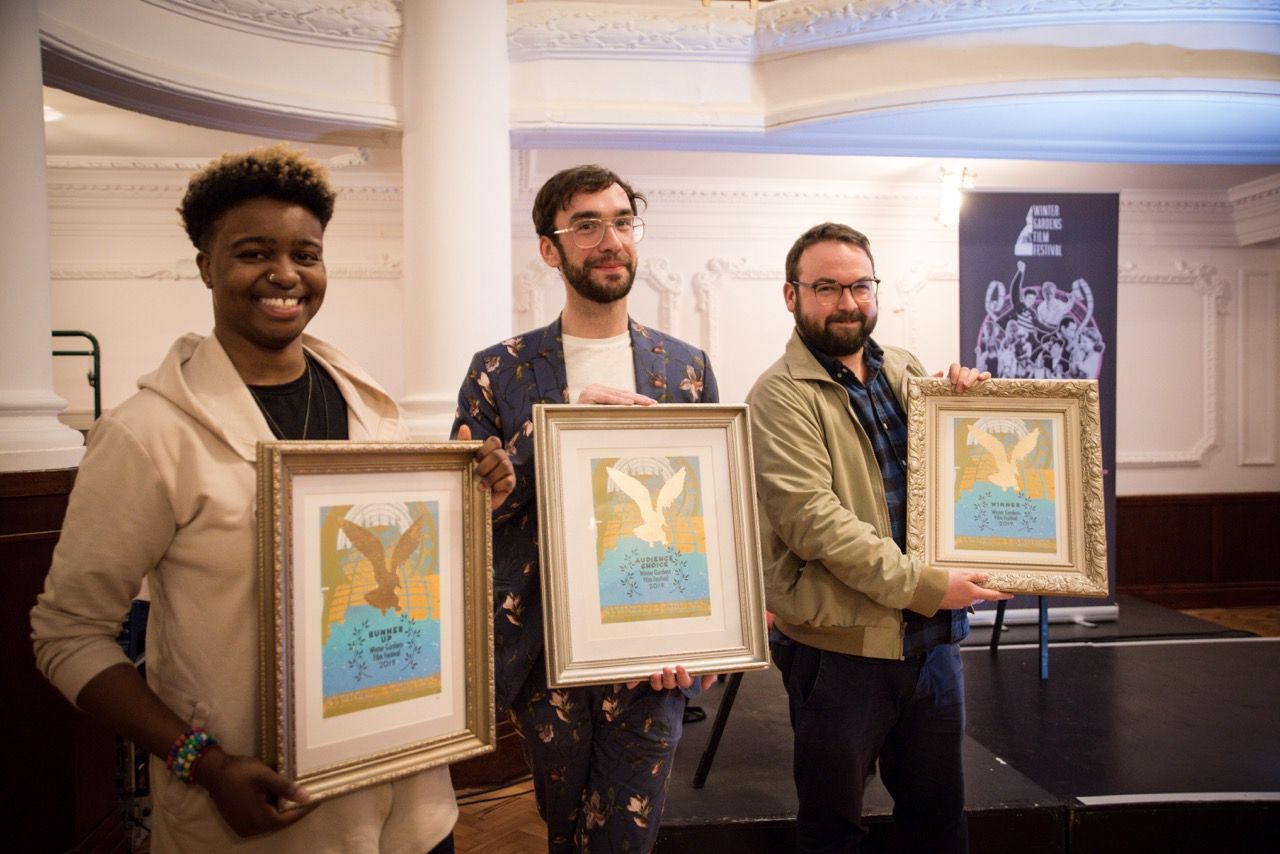
What are you doing as part of your work to help #BreaktheBias?
As Aunty Social goes into its next phase, operating a new creative venue in Blackpool Town Centre, I’ve been looking at ways to make sure it develops as a relevant, democratic, caring and connected cultural organisation.
I’ve spent time researching the operations of radical grassroots creative organisations as well as talking to academics about alternative organisational structures. I’ve also reviewed our governance to make sure that our systems have creativity, fairness, safety, rest and care at their centre.
Last year, I became an #IamRemarkable facilitator. #IamRemarkable is a Google initiative empowering women and other underrepresented groups to celebrate their achievements in the workplace and beyond. I run free online sessions to help people feel more confident when promoting themselves. The group sessions are a safe space for people to share and discuss their experiences and the outcome is so powerful; it’s just such a privilege to be a part of that.
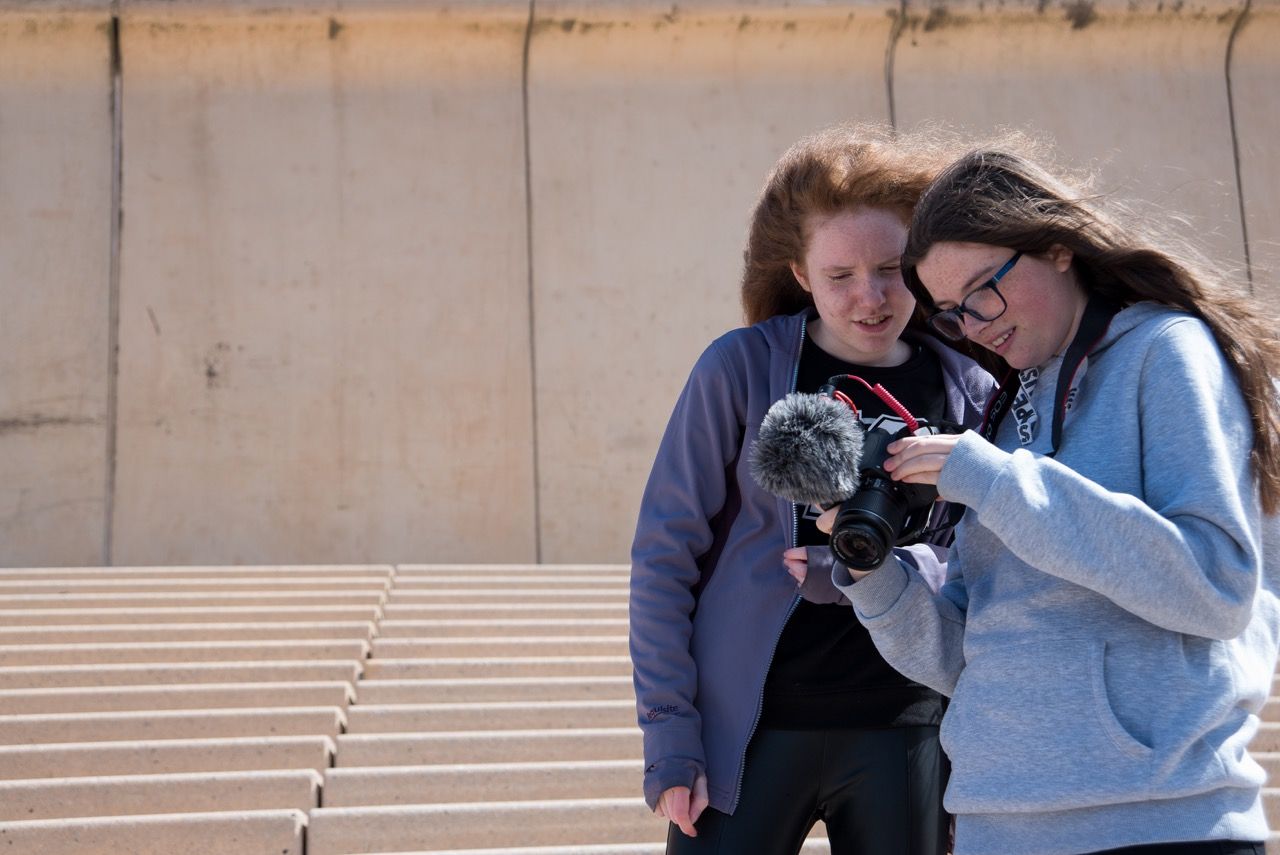
Sadly I don’t think that bias, assumptions and stereotypes can ever be completely eradicated, however we do have a choice about whether and how we act on them. I make an effort to constructively challenge problematic behaviour and encourage others to do the same. Challenging is one of the most difficult things to do, it’s uncomfortable, but can also encourage others to speak up too.
At the same time, I’m making an effort to be kinder to myself too. I offer equality, diversity and inclusion advice as part of my freelance work, but I get lots of requests for specialist help and advice with the expectation that I will do it for free - something that’s very familiar to other black and brown women, especially in the wake of BLM.
Sometimes, I’ll have the capacity to have a quick chat with a small community organisation and give some pro bono advice; but on other occasions it’s necessary to outline that what’s requested is part of my paid work.
This year I promised myself to be more selective and aware of the value of my time and skills - having boundaries is a form of professional self care.
Finally, I make sure that I take up space through positions on regional and national boards and committees. This gives me the ability to influence and lobby at a more strategic level.
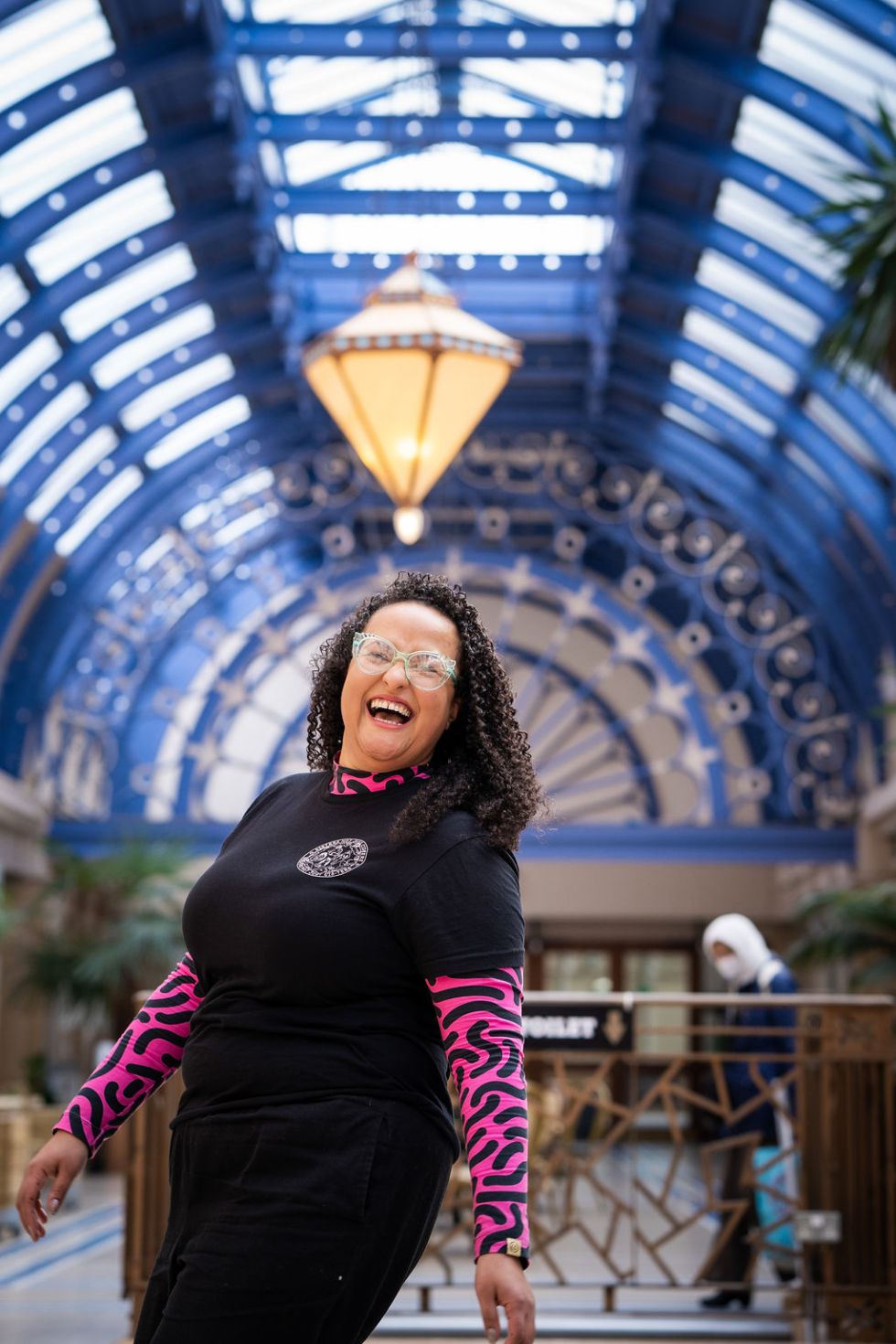
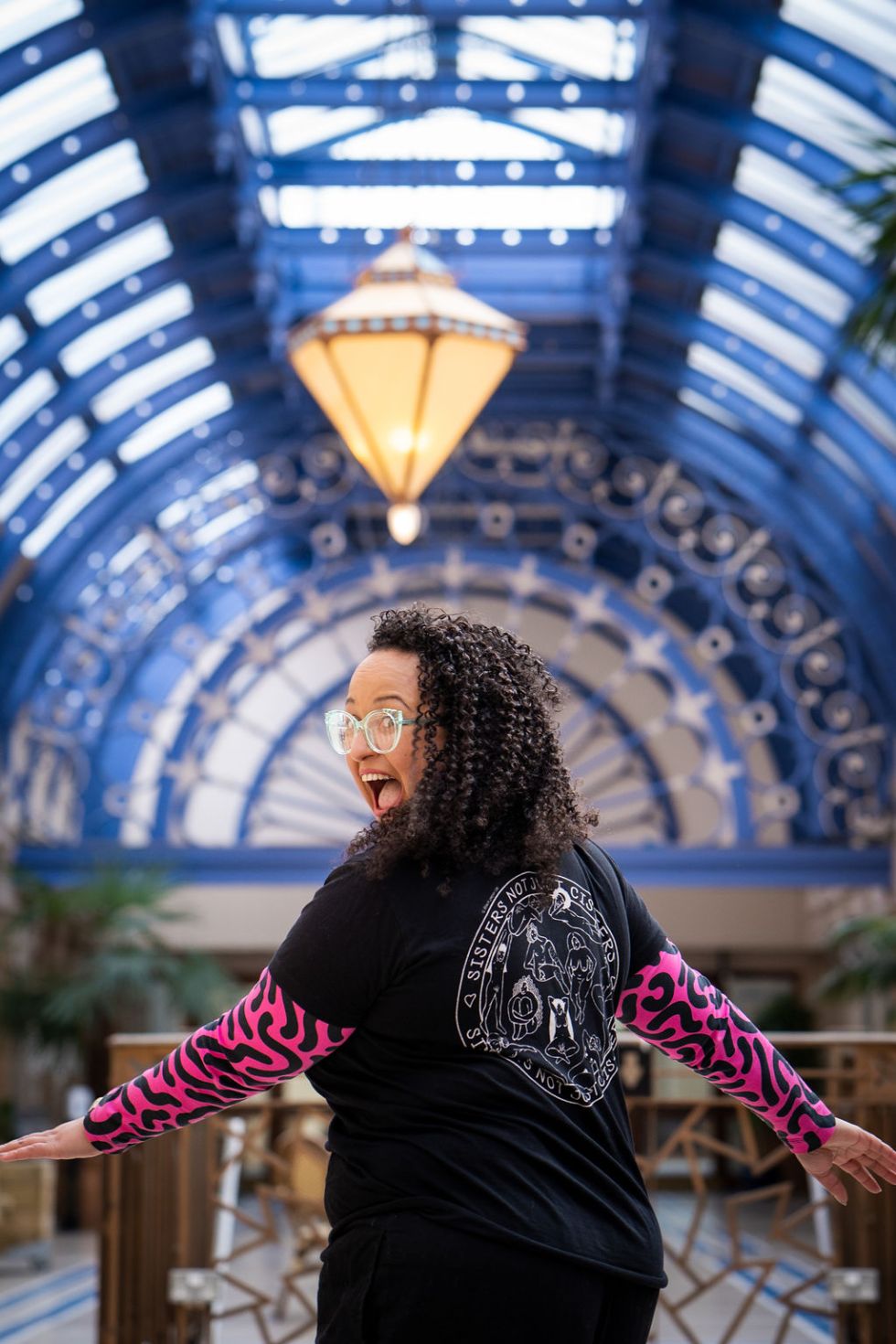
Twitter: @microwavedrama / @_AuntySocial_
Instagram: @microwavedrama / @_AuntySocial_
Facebook: loveAuntySocial
Website: auntysocial.co.uk
Image credits for Catherine Mugonyi's Projects
- 1. Aunty Social Ceramics Workshops
- 2. "I just want to feel safe" Art Activism Embroidery by Catherine Mason. Photo Claire Griffiths.
- 3. Embroidery on Denim jumpsuit. Art by Linda Copeland. Photo by CM.
- 4. Aunty Social Pier Day images. Photos by CJ Griffiths.
- 5. "Text me when you get home" Art Activism Embroidery by Louise Ashcroft. Photo Claire Griffiths.
- 6. Winter Gardens Film Festival 2019 Award Presenters. Photo by CJ Griffiths.
- 7. Aunty Social Film Club. Photo by CJ Griffiths.
Catherine was photographed by Rachel Ovenden for IWD22
All portrait images in this feature article © Rachel Ovenden
Rachel Ovenden is a photographer based in Preston, Lancashire. After gaining her Degree in Photography from Leeds Arts University, she started her career in 2018. Rachel now splits her time between weddings, events, interior photography, product photography and various other commercial projects, helping Lancashire businesses to share their story and values in a creative and transparent way.
- Website: lancashireweddingphotography.co.uk
- Facebook: facebook.com/rachelovendenphoto
- Instagram: @rachelovendenphoto
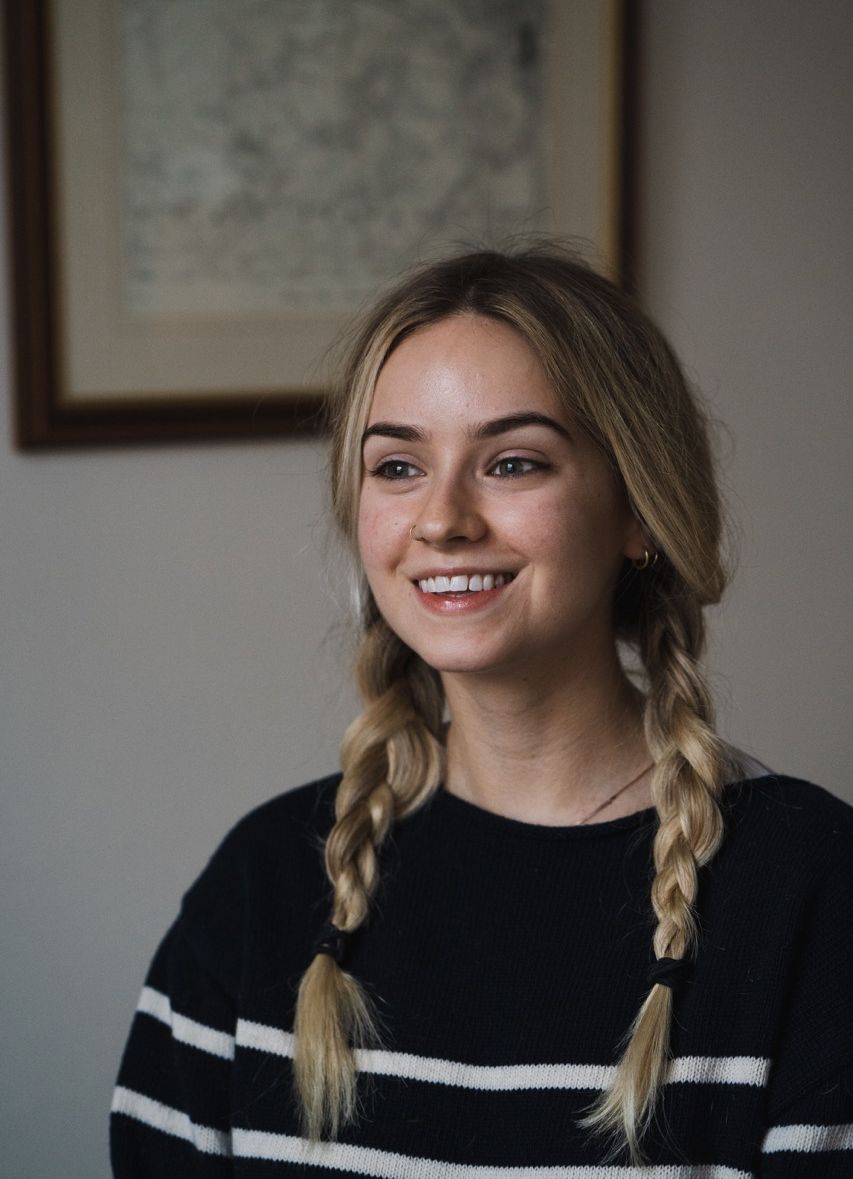
International Women's Day 2022
International Women's Day (March 8) is a global day celebrating the social, economic, cultural, and political achievements of women. The day also marks a call to action for accelerating women's equality.
IWD has occurred for well over a century, with the first IWD gathering in 1911 supported by over a million people. Today, IWD belongs to all groups collectively everywhere. IWD is not country, group or organization specific.

Break the Bias
Imagine a gender equal world.
A world free of bias, stereotypes, and discrimination.
A world that is diverse, equitable, and inclusive.
A world where difference is valued and celebrated.
Together we can forge women's equality.
Collectively we can all #BreakTheBias.

